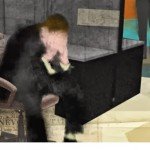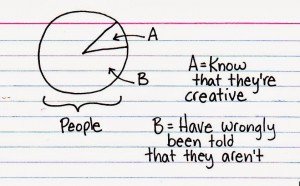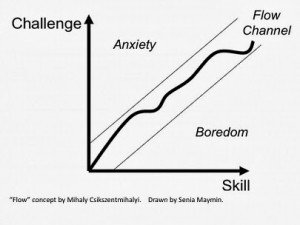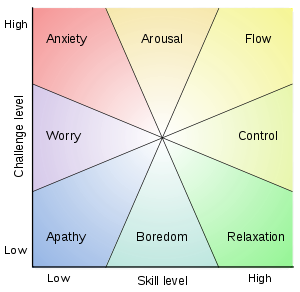Creativity and our life as employees
I answered the following question on Quora:
Creativity: Do creative people get bored at work more easily than non-creative people? Or do they just need a job that makes use of that creativity?

Fast Company published the article 10 Paradoxical Traits Of Creative People . It is based on the work of Mihaly Csikszentmihalyi, professor of Management and Psychology at University of Chicago:
- CREATIVE PEOPLE HAVE A GREAT DEAL OF PHYSICAL ENERGY, BUT THEY’RE ALSO OFTEN QUIET AND AT REST.
- CREATIVE PEOPLE TEND TO BE SMART YET NAIVE AT THE SAME TIME
- CREATIVE PEOPLE COMBINE PLAYFULNESS AND DISCIPLINE, OR RESPONSIBILITY AND IRRESPONSIBILITY
- CREATIVE PEOPLE ALTERNATE BETWEEN IMAGINATION AND FANTASY, AND A ROOTED SENSE OF REALITY
- CREATIVE PEOPLE TEND TO BE BOTH EXTROVERTED AND INTROVERTED
- CREATIVE PEOPLE ARE HUMBLE AND PROUD AT THE SAME TIME
- CREATIVE PEOPLE, TO AN EXTENT, ESCAPE RIGID GENDER ROLE STEREOTYPING
- CREATIVE PEOPLE ARE BOTH REBELLIOUS AND CONSERVATIVE
- MOST CREATIVE PEOPLE ARE VERY PASSIONATE ABOUT THEIR WORK, YET THEY CAN BE EXTREMELY OBJECTIVE ABOUT IT AS WELL
- CREATIVE PEOPLE’S OPENNESS AND SENSITIVITY OFTEN EXPOSES THEM TO SUFFERING AND PAIN, YET ALSO TO A GREAT DEAL OF ENJOYMENT
“The candidate must be proud, but also modest, must alternate between fantasy and rooted sense of reality, must be smart, yet naive, must combine responsibility with irresponsibility, must be both introverted and extroverted, rebellious and conservative, exposed to suffering and pain, but also to great enjoyment etc..”
The successful candidate of such an employment ad, if it will ever exist, will be unemployable in the rest of 99% jobs advertised on LinkedIn,
Csikszentmihalyi points out that creativity cannot be understood by looking only at the people who appear to make it happen. Creative ideas need a receptive audience to record and implement them. And without the assessment of competent outsiders, we cannot decide whether the claims of a self-styled creative person are valid.
Creativity results from the interaction of a system consisting of three elements: (1) a culture that contains symbolic rules, (2) a person who brings novelty into the symbolic domain, and (3) a field of experts who recognize and validate the innovation.
We must use mental energy to be creative ;
In terms of using mental energy creatively, perhaps the most fundamental difference between people lies in how much uncommitted attention they have left over to deal with novelty. When survival needs require all of one’s attention, none is left over for being creative.
Desperation is a killer of creativity.

Perhaps we should allocate on purpose time to notice novelty:
- Try to be surprised by something every day
- Try to surprise at least one person every day
- Write down each day what surprised you and how you surprised others
- When something strikes a spark of interest, follow it
Other advise from Csikszentmihalyi seems rather obvious:
- Make time for reflection and relaxation
- Find out what you like and what you hate about life
- Start doing more of what you love, less of what you hate.
- Develop what you lack
I created Ahrono Associates to have this freedom. I am very grateful to each of my customers, because they become partners who create together with me. Life is like crossing an improvised suspended bridge with huge precipices below, with looks like narrow corridor. They keep me on track.
Any deviation means sinking in boredom or despairing in anxiety. People I work for may look the opposite of what I am, but in essence we have a deep chemistry and keep me going. I am still waiting for this life changing call. The one most people think it happens in books and movies. I want to be in the the area Csikszentmihalyi calls flow.






